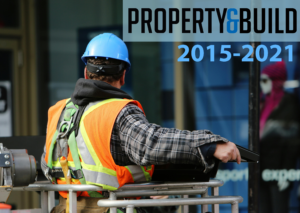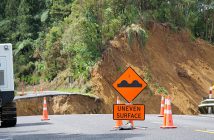Massey University has opened enrollments for New Zealand’s first entry-level university qualifications in facilities management

Facilities managers oversee the strategic and operational management of facilities to ensure public spaces and workplaces are safe, healthy, sustainable, productive and fit-for-purpose.
The Diploma in Facilities Management is aimed primarily at school leavers and junior level FM professionals looking to underpin their practice with foundational knowledge of a rapidly growing sector.
The new Graduate Diploma in Facilities Management is designed to provide an educational route for facilities management professionals to progress into more senior leadership roles.
Focused on the 13 core Facilities Management competencies, which range from operations and maintenance to environmental stewardship and sustainability.
Courses include Digital Evolution of Facilities Management; Managing Risk and Operational Sustainability; Construction Health, Safety & Wellbeing; Asset Management; Facilities Management Planning; Construction Law & Contracts and many more papers tailored to the Facilities Management (FM) industry in New Zealand.
“Our School of Built Environment is really pleased to partner with The Facilities Management Association of New Zealand (FMANZ) to introduce these new courses that will further support the next stage of the maturity of facilities management as a fully recognised profession in New Zealand,” says Professor Monty Sutrisna, Head of School at Massey University.
FMANZ has worked closely with Massey University’s to progress these fit-for-purpose qualifications, receiving academic approval by the Committee on University Academic Programmes in September.
“Having homegrown university qualifications in facilities management is a ground-breaking advancement for the professionalisation of the industry and one we are extremely excited about,” says FMANZ Chief Executive Gillian Wess.
“These Massey University qualifications provide an educational pathway for school leavers and practising facilities management professionals who wish to pursue FM as a career of choice and mark the recognition and coming of age of FM in Aotearoa.”
Both programmes comprise eight credit courses that can be completed in one year of full-time study, or part-time, via on-campus or distance learning. There is also an option to exit at Certificate/Graduate Certificate level on completion of four papers.
The qualifications are based around n the 13 core FM competencies, which range from operations and maintenance to environmental stewardship and sustainability, courses include Digital Evolution of Facilities Management; Managing Risk and Operational Sustainability; Construction Health, Safety & Wellbeing; Asset Management; Facilities Management Planning; Construction Law & Contracts and many more papers tailored to the FM industry in New Zealand.
There is a strong demand for facilities managers in New Zealand, with many employers saying it’s difficult to find the right person for the job.
Around 30 percent of employers who took part in a survey conducted by FMANZ in 2018 said they have sourced candidates from overseas because they couldn’t find the right person locally. This is due, in part, to the fact there hasn’t been a clearly defined FM tertiary qualification pathway in New Zealand until now.
In the same survey, 62 percent of facilities managers said they had been headhunted by another company.
The first intake of students will begin their studies in February 2021.
For more information, please contact www.fmanz.org or Dr. James O. B. Rotimi | j.rotimi@massey.ac.nz | 09 213 6329 | www.massey.ac.nz
FMANZ is the professional body for facilities management professionals in New Zealand. Its role is to support education, networking and knowledge sharing for members and to raise the profile of the FM industry.
Dr James O. B. Rotimi, j.rotimi@massey.ac.nz, 09 213 6329
Gillian Wess, ceo@fmanz.org 021 284 2440



